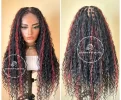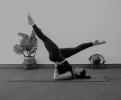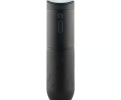Advantage of Seeing the Right Doctor: What Type of Doctor Treats Varicose Veins?

Varicose veins affect millions of people worldwide, causing discomfort and sometimes severe complications if left untreated. Often, individuals experience pain, itching, and swelling due to varicose veins, but the primary concern lies in the long-term health impact these veins may have. Seeking the right medical help early on can make a significant difference in managing and even eliminating varicose veins. This article explores the advantages of consulting the correct specialist for varicose veins and dives into the types of doctors who treat this condition.
What Are Varicose Veins?
Varicose veins are enlarged, twisted veins that usually appear on the legs. They develop when veins become dilated and fail to pump blood efficiently back to the heart, causing blood to pool in the veins. This condition can cause physical discomfort and aesthetic concerns, with veins often visible under the skin as blue or purple bulging lines. Although they’re commonly seen in the legs, varicose veins can appear elsewhere in the body.
Why Is Choosing the Right Doctor for Varicose Veins Important?
Choosing the right doctor is crucial because varicose veins may sometimes signal underlying health problems related to the circulatory system. By consulting a specialist, you can receive a precise diagnosis, effective treatment options, and preventive care for future vein issues. Specialists in vein care understand the complexities of vein diseases and offer tailored solutions based on individual needs.
Which Doctors Specialize in Treating Varicose Veins?
When it comes to varicose vein treatment, there are several types of doctors who specialize in this area. Knowing the type of doctor who treats varicose veins can help you make an informed decision and ensure you receive the best care.
1. Phlebologists
Phlebologists are vein specialists who focus on diagnosing and treating venous disorders, including varicose veins, spider veins, and other conditions that affect vein health. These doctors have specific training in vein treatment techniques, such as sclerotherapy (injecting medicine into veins to close them) and other non-invasive methods.
Advantages of Consulting a Phlebologist:
- Phlebologists are experts in minimally invasive treatments, which often involve shorter recovery times and fewer side effects.
- They are trained in diagnosing various vein conditions and can provide a thorough assessment of your vein health.
2. Vascular Surgeons
A vascular surgeon specializes in diseases affecting the vascular system, including arteries, veins, and lymphatic vessels. They are qualified to perform surgeries for severe cases of varicose veins that require more intensive intervention. Vascular surgeons also offer procedures like vein stripping and ligation, which are effective for advanced varicose vein cases.
Advantages of Consulting a Vascular Surgeon:
- Vascular surgeons can handle complex varicose vein cases and offer surgical solutions that other specialists may not provide.
- They can address additional complications like deep vein thrombosis (DVT) and other circulatory issues that may accompany varicose veins.
3. Dermatologists
In some cases, dermatologists treat mild cases of varicose veins, especially when they’re primarily a cosmetic concern. Dermatologists perform treatments like laser therapy, which is effective in reducing the appearance of small veins on the skin’s surface. They may refer you to a vascular specialist for more extensive treatment if necessary.
Advantages of Consulting a Dermatologist:
- Dermatologists provide aesthetic solutions that reduce the visible appearance of varicose veins.
- They are skilled in non-invasive laser treatments, which are suitable for smaller, surface-level veins.
4. Interventional Radiologists
Interventional radiologists use imaging techniques to guide minimally invasive procedures, such as endovenous laser therapy (EVLT) or radiofrequency ablation (RFA). These specialists treat varicose veins with high precision, allowing for effective treatment with minimal discomfort.
Advantages of Consulting an Interventional Radiologist:
- Interventional radiologists can provide image-guided procedures, ensuring accuracy and reducing the risk of complications.
- They offer advanced, minimally invasive techniques that provide effective results with less downtime.
Common Treatment Options for Varicose Veins
Once you know what type of doctor treats varicose veins, you’ll be better prepared to discuss potential treatment options. Each specialist may recommend various treatments, depending on the severity and location of your varicose veins.
Sclerotherapy
Sclerotherapy involves injecting a solution directly into the varicose veins, causing them to collapse and gradually fade. This method is often used by phlebologists and is ideal for small to medium-sized varicose veins. Sclerotherapy has a high success rate and minimal downtime.
Laser Therapy
Laser therapy is a non-invasive treatment used by both dermatologists and interventional radiologists to treat small varicose veins and spider veins. This technique uses intense laser light to close the veins, helping them disappear over time. Laser therapy is effective, especially for visible veins close to the skin surface.
Radiofrequency Ablation (RFA) and Endovenous Laser Therapy (EVLT)
RFA and EVLT are minimally invasive procedures performed under local anesthesia. An interventional radiologist or a vascular surgeon usually performs these procedures by using heat generated through radiofrequency or laser to close the affected veins. Both techniques are effective for larger varicose veins.
Vein Stripping and Ligation
In cases where varicose veins are severe, a vascular surgeon may recommend vein stripping or ligation. These procedures involve surgically removing the affected veins, which may be necessary if other methods fail. Though it requires a longer recovery time, this surgical approach can provide a lasting solution for advanced varicose veins.
When Should You Seek Treatment?
While varicose veins can be a cosmetic concern for some, for others, they can cause discomfort and indicate other health risks. Consider seeking treatment if you experience any of the following symptoms:
- Persistent pain or aching in the legs
- Swelling around the veins
- Skin irritation, itching, or burning sensations around the affected area
- Formation of ulcers or skin discoloration near the veins
If left untreated, varicose veins can lead to more severe conditions such as blood clots, skin ulcers, or chronic venous insufficiency.
Benefits of Early Diagnosis and Treatment
One of the significant advantages of early diagnosis and treatment is that it can prevent varicose veins from worsening. With the help of a vein specialist, you can reduce symptoms, improve blood circulation, and avoid complications.
Enhanced Comfort
Seeking prompt treatment can relieve symptoms like swelling, throbbing, and aching in the legs. Early intervention can provide relief, allowing you to enjoy daily activities without discomfort.
Improved Circulation
Varicose vein treatment can restore proper blood flow, reducing the risk of blood pooling and clot formation. Improved circulation can help prevent other conditions like deep vein thrombosis and chronic venous insufficiency.
Boosted Confidence and Appearance
For those concerned with the aesthetic impact, treatments can significantly reduce the appearance of varicose veins. A dermatologist or phlebologist can provide cosmetic treatments that enhance your skin’s appearance and improve your confidence.
Conclusion
Choosing the right doctor for varicose veins is essential for effective treatment. Phlebologists, vascular surgeons, dermatologists, and interventional radiologists all specialize in vein health but offer different approaches based on the severity of your condition. Knowing what type of doctor treats varicose veins empowers you to make informed healthcare decisions. Whether you seek cosmetic improvement or relief from pain, consulting a specialist can help you manage varicose veins and maintain healthy circulation.
ABOUT ME

Welcome to my blog Artcle slurp. We share latest article for all niche. If you want to publish your article then mail me on articleslurpblog@gmail.com



























